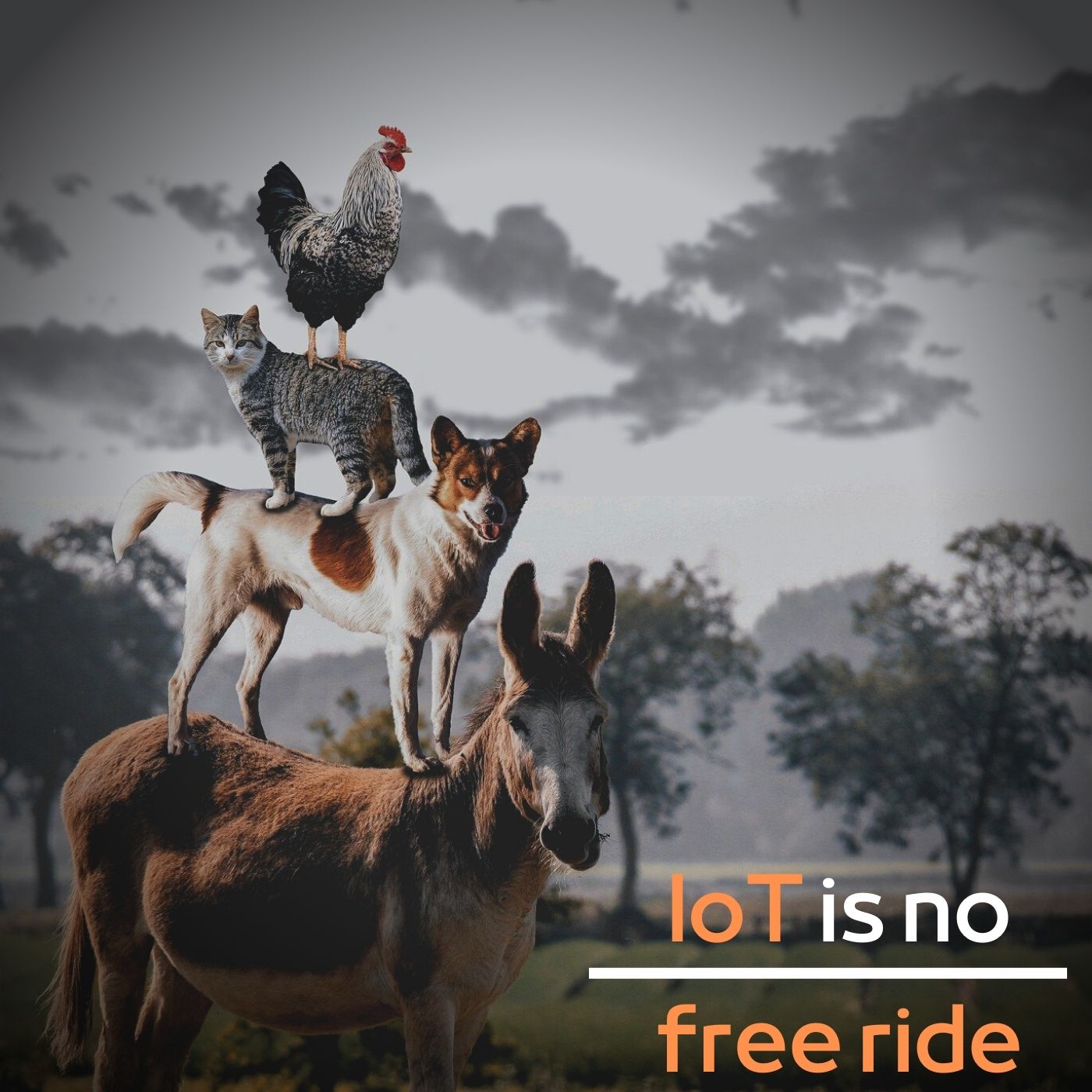IoT is democratising. I spoke about that in my last keynote at the Things Conference. IoT can be an excellent resource for gathering data. Data from sensors or trackers, or a combination of sensors and trackers. Data can be transmitted via your private LoRaWAN network or your 5G LPWAN operator. The data can be collected and stored on a public or private IoT platform. Platforms that could be based on open-source firmware that you run on your local computer or platforms hosted in the cloud as pay-as-you-go services. So IoT can be used by the farmer who wants to understand how to optimise his crops or the large enterprise with a worldwide organisation. It truly has a lot to offer to many people.
With IoT, we can make smarter decisions so that companies can be more competitive and, at the same time, use our resources more efficiently.
The cool thing with IoT is the ecosystem of device manufacturers and ways to get started. A great device is one of four things you need to reach your goal, the other three being a prosperous idea, a wireless network and an IoT platform. Am I missing something here? Yes, I am, funding.
IoT -fuel for ideas
IoT is an enabler. Enabler of better efficiency. An enabler of more intelligent use of resources. An enabler of smartness. But to get there, we need two things: funding and success. At the beginning of almost any business venture, you are sure about your success. Let’s face it, that is why you started your IoT project or your business based on your IoT idea.
Failure statistics look different in different parts of the world, but in the US, 20% of new businesses fail within the first year. I think the figure for Sweden is similar. On the other hand, 74% of IoT projects fail to prove that they are bringing any value to the table. I want to point out one problem: IoT projects are run by technicians and not the business developers, sales staff, the marketers or the financial department. Unfortunately, many organisations even forget to make a budget for their IoT project. They fail to analyse the value of the project to their business, and they forget to analyse what their customers want to pay for.
As a device manufacturer and distributor, I am addressing this from my angle. But I see that organisations tend to talk about the easy thing, technology. They compare battery life metrics, size, weight and eight or nine years of battery life instead of looking at the problem from a business perspective. So if you do not start to invite the sales department, the marketing people and the management to your IoT project, the project will fail. I am sorry to say, but I think this is the case in way too many organisations.
I can’t offer a free ride
I talk to many exciting organisations every week. Most of them understand the value of the business perspective in an IoT project. But some companies have the impression that their excellent idea can fuel any IoT project. Can we perhaps add a feature to our device based on their concept or prediction? They do have a very promising idea but a limited budget…
I am sorry everytime I turn down great ideas, but if we only offer free rides, we will not be successful. We cannot develop successful devices if we develop devices based on features that meets just one companies vision. We will be stuck with someone else’s dream, trying to scale it would mean talking to their competitors.
Therefore I am proud that we are now offering our services for a price, we call it kick-start IoT, the cheapest way to get onto the IoT-train.
Kick-start IoT starts with real needs and ends in MVP, a minimum viable product. There is a price tag of 2.5 k€ for consultancy and devices. But we have limited time, and we do not want to waste yours or ours on projects that fail. There is no such thing as a free ride, but this is close to it. And in all honesty, if you do not have a budget exceeding 2,5 k€, you will have to gather more funds or rethink the situation before you look at IoT again. Because if you look at increasing efficiency for your company and can not calculate a profit of 2.5 k€ short or long term, then there is no idea to look at IoT at the moment.

